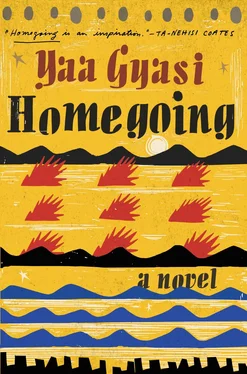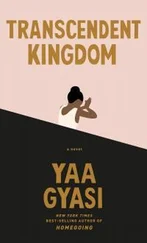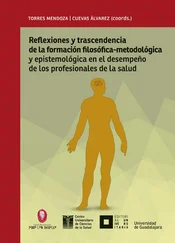It was a ten-mile walk from the stream to Akosua’s hut in the bush on the outskirts of town, and James was determined to learn everything there was to know about her.
“Why would you not shake my hand at the king’s funeral?” James asked.
“I told you. I will not shake the hand of a Fante slaver.”
“And am I a slaver?” James asked, trying to keep his anger from entering his voice. “If I am Fante, am I not also Asante? Was my grandfather not your king?”
She smiled at him. “I am one of thirteen children. Now there are only ten of us who remain. When I was a small girl, there was war between my village and another. They took three of my brothers.”
They walked in silence for a few minutes longer. James was sorry for her loss, but he knew too that all loss was just a part of life. Even his mother, important as she was, had once been captured, stolen from her family and planted in another’s. “If your village had won that war, would you not have taken three of someone else’s brothers?” James asked, unable to resist the question.
Akosua looked away. The bucket on her head was so steady, James wondered what it would take to knock it down. Maybe wind? Maybe an insect? “I know what you are thinking,” she finally said. “Everyone is a part of this. Asante, Fante, Ga. British, Dutch, and American. And you are not wrong to think like this. It is how we are all taught to think. But I do not want to think this way. When my brothers and the other people were taken, my village mourned them as we redoubled our military efforts. And what does that say? We avenge lost lives by taking more? It doesn’t make sense to me.”
They stopped walking so that she could adjust her wrapper. For the second time that day, James tried as hard as he could not to look at her breasts. She continued. “I love my people, James,” she said, and his name on her tongue was indescribably sweet. “I am proud to be Asante, as I am sure you are proud to be Fante, but after I lost my brothers, I decided that as for me, Akosua, I will be my own nation.”
As James listened to her speak, he felt something well up inside him as it had never done before. If he could, he would listen to her speak forever. If he could, he would join that nation she spoke of.
They walked farther. The sun was getting even lower in the sky, and James knew it would be impossible for him to make it home before nightfall. Still, they slowed down so that it seemed their feet were not even moving at all really, just coasting slowly, as though their bodies were being lifted and flown awkwardly by the mosquitoes they could feel buzzing around them.
“Are you promised to anyone?” James asked.
Akosua glanced shyly at him. “My father does not believe in promising a girl before her body has shown that she is ready, and I have not yet received my blood.”
James thought about his own wife-to-be back home in his village, selected for him because of her status. He would never be happy with her, and his marriage would be as loveless and biting as that of his parents. But he knew his parents would never approve of Akosua, not even as a third or fourth wife. She had nothing, and she came from nowhere.
Nothing from nowhere. It was something his grandmother Effia used to say on nights when she seemed most sad. James couldn’t remember a day when he hadn’t seen Effia in all black, nor a night when he hadn’t heard her faint crying.
When he was still just a small boy, he’d spent a weekend with her at her house near the Castle. In the middle of the night, he had woken up and heard her crying in her room. He’d gone to her, and wrapped her into a hug as tight as his little arms could muster.
“Why are you crying, Mama?” he’d asked, touching his fingers to her face, trying to catch some of the tears to blow and make a wish on as his mother sometimes did when he cried.
“Have you heard the story of Baaba, my own?” she asked, pulling him up onto her lap and rocking him back and forth.
That was the first night James heard it, but it wasn’t the last.
Now James grabbed Akosua’s hand, stopped her from moving. The bucket on her head began to sway, and she lifted her hands to steady it. “I want to marry you,” James said.
They were only steps away from the girl’s hut. He could see it through the bushes. Young children were wrestling with each other in the mud, coming up with their faces caked in brown. A man stood chopping the tall grass with his machete. Each time the blade hit the ground it shook the earth. James thought he could feel it move under his feet.
“How can you marry me, James?” the girl said. She looked worried now, her eyes stealing over to where her family waited. If she was too late with the water, her mother would beat her, then yell at her until dawn. No one would believe that she had been with the Asante king’s grandson, and if they did believe it, they would only smell trouble.
“When your blood comes, you must tell no one. You must hide it. I am leaving tomorrow, but I will come back for you, and we will leave this town together. Start a new life in a small village where no one knows us.”
Akosua was still looking at her family, and he knew how crazy he sounded, and he knew how much he was asking her to give up. The Asante puberty rites were a serious matter. There was a weeklong ceremony to bless the girls’ fresh womanhood. The rules thereafter were strict. Women in menses could not visit the stool houses, could not cross certain rivers. They lived in separate houses and painted their wrists with white clay on the days they bled. If anyone found out a woman had bled but not told, the punishment would be great.
“Do you trust me?” James asked, knowing it was a question he had no right to ask.
“No,” Akosua answered finally. “Trust is a thing to be earned. I don’t trust you. I have seen what power can do to men, and you are from one of the most powerful families.”
James’s head grew light. He felt faint, like he would soon fall.
“But,” Akosua continued, “if you come back for me, then you will earn my trust.”
James nodded slowly, understanding. He would be back in his village by the end of the month, at his own wedding by the end of the year. The war would continue, and nothing, not his life nor his heart, was guaranteed. But listening to Akosua speak, he knew he would make a way.
*
James could not explain to Amma why he did not want to sleep in her hut. They had been married for three months and his excuses were wearing thin. On their wedding night, he had told her he was ill. For the entire week after, his body had taken over the excuse-making for him, his penis lying limp between his legs each time he went to her, even on the nights she braided her hair the way he liked it and rubbed coconut oil on her breasts and between her thighs. After that week, he had spent another two pretending to be too embarrassed to go to her, but soon, that too had failed him.
“You must go to see the apothecary. There are herbs you can take to help with this. If I do not get pregnant soon, people will start to believe there is something wrong with me,” Amma said.
He felt bad for her. It was true. Failure to conceive was always believed to be the woman’s fault, a punishment for infidelity or loose morals. But, in these few short months, James had gotten to know his wife well. She would soon tell everyone in the village that there was something wrong with him, and word would get back to his father and mother that he had not fulfilled his husbandly duties. He could hear his mother now. “Oh, Nyame, what have I done to deserve this? First a weak husband and now a weak son!” James knew he would have to figure something out soon if he wanted to remain faithful to the memory of Akosua.
Читать дальше

![Ally Carter - [Gallagher Girls 01] I'd Tell You I Love You But Then I'd Have to Kill You](/books/262179/ally-carter-gallagher-girls-01-i-d-tell-you-i-lo-thumb.webp)










